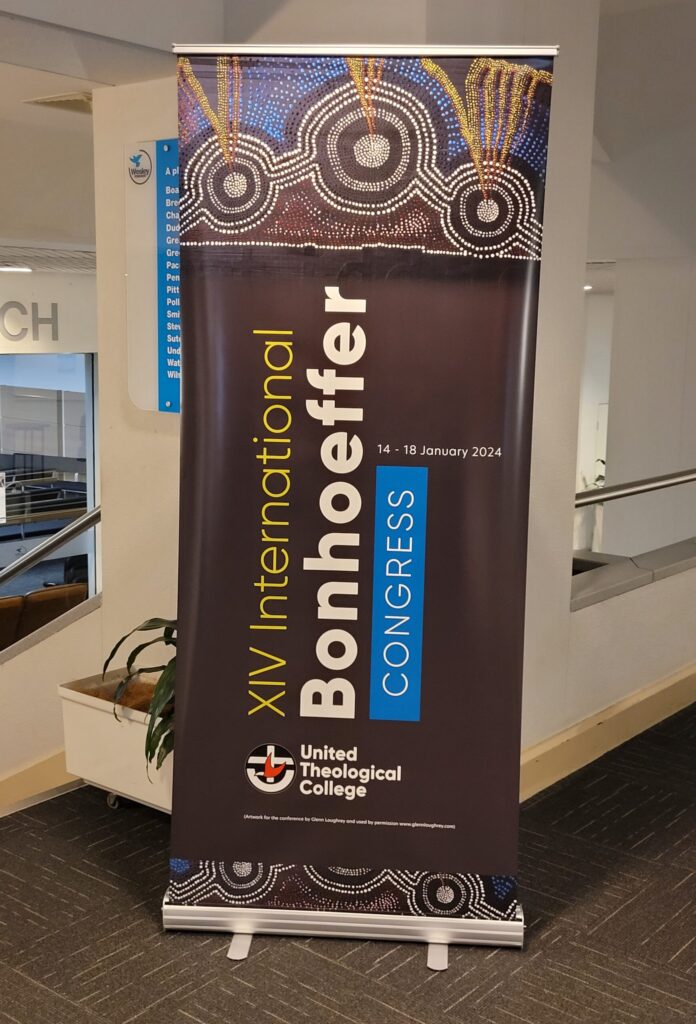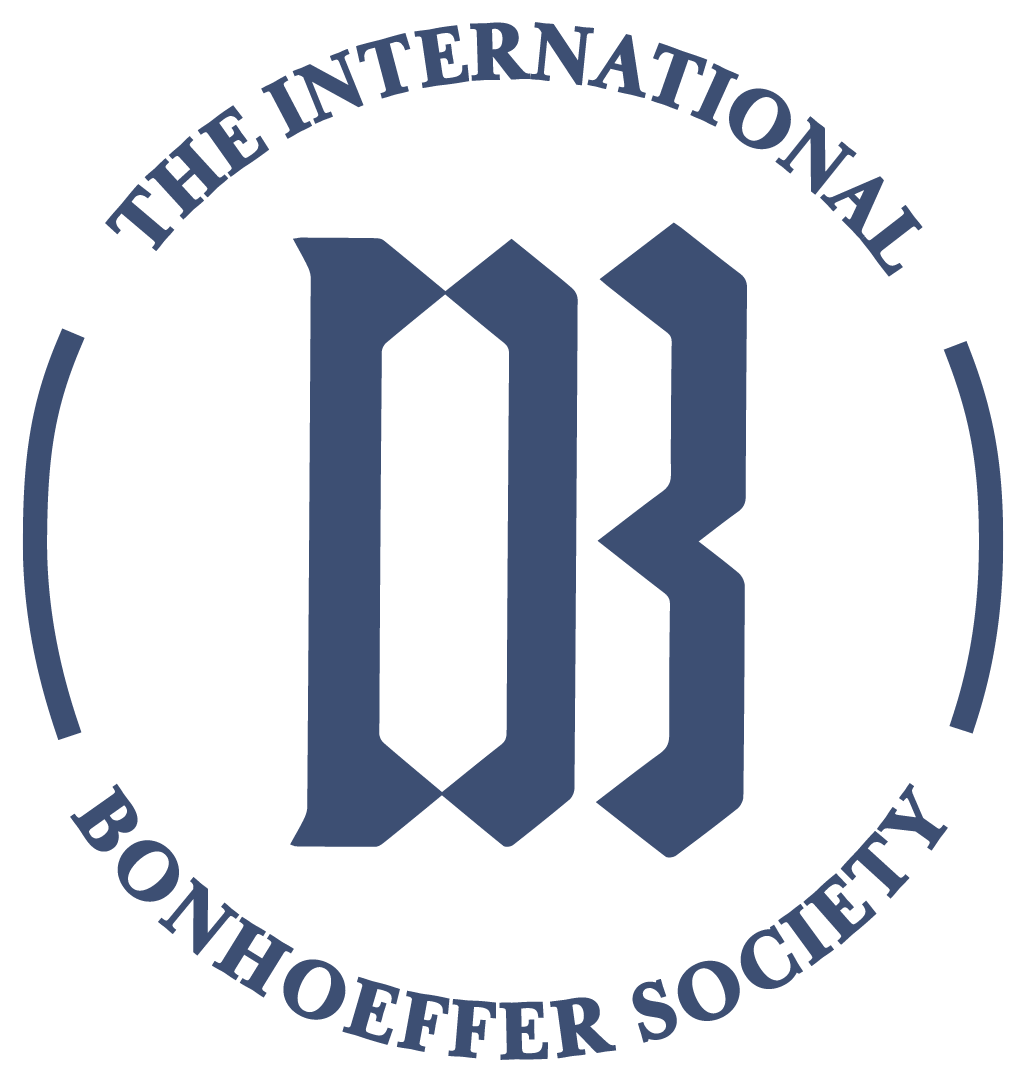Crisis and Hope: Reading Bonhoeffer for Today
In January of 2024, nearly 150 participants from around the world gathered in Sydney, Australia to engage the life and work of Dietrich Bonhoeffer. The sessions were focused, in one way or another, on how Bonhoeffer can help us understand and negotiate the many challenges we are facing in the world today.
“We should have so much love for this contemporary world of ours, for our fellow human beings, that we should declare our solidarity with it in its crisis and hope” (DBWE 10:326).
Read some reflections by Congress participants here:
Reflection by Andrew Clark-Howard, Charles Sturt University
Two Paths: Text or Context?
Andrew Clark-Howard, Charles Sturt University
Theology works with texts, texts which become canons that generate more texts. All this textual work hides something important: texts are the products of bodies, and bodies exist in community with other bodies. Christian theology, of course, is not merely word but also flesh.
As a PhD student not based in Europe or North America who has spent the last few years reading texts from within the Bonhoeffer canon, this Sydney Congress was a wonderful time to encounter the bodies behind the texts, to finally put faces to the many names I had been reading for so long. The delight of this alone made my Congress more than worthwhile. Bonhoeffer scholars often pride themselves on the quality of their community. This pride is well earned, and it was especially wonderful to be welcomed by and hang out with more senior scholars who have been on this road a little longer (special shout out to Lori and David!).
Textual analysis and fidelity were indeed important parts of the conversations that surrounded many of the keynote and wider paper presentations. Two schools, in my own informal observations, emerged. One was frustrated by what they saw as a lack of engagement with the text, with the concentrated work of engaging in the details of Bonhoeffer’s writings in situ. This school found the focus on contemporary issues at best overrepresented, at worst, a sign of the demise of more serious scholarship. The other school, however, celebrated this attention to our present “crisis and hope,” and advocated for its continual growth.
The tracing of these two schools within the study of Bonhoeffer will be of continuing importance, especially as it relates to Bonhoeffer’s reception by generations (such as myself) increasingly removed from the community of scholars whose legacy lies within the now complete DBWE. The further we get away from the bodies behind these texts the more things begin to shift. It was this shift that seemed to me a central feature of the Congress.
From the perspective of this newer reader of Bonhoeffer’s works, while fidelity to the text matters it is also stifling and constraining. Many Bonhoeffer projects in the last decade of academic publishing have made significant inroads in tracing the nuances of Bonhoeffer’s intellectual trajectory, connecting previously disparate parts of his corpus, and relating his writings and thought to the wider theological and philosophical streams he swam in. So far, perhaps, so good.
The richest work, however, also presses beyond these constraints and into the array of contemporary challenges that we now face, in service of a different type of fidelity, that is, a fidelity to the courageous and dissenting spirit of Bonhoeffer’s own life and his continual invocation of the newness that arises in one’s encounter with Christ. This latest Congress, in its wide and sustained attention to the crises we face, was a witness to the strength and energy of this second emphasis in Bonhoeffer scholarship, and on that front was thoroughly enjoyed.
Reflection by Ryan David Hawk, Church of Ireland
Christ existing as community in Sydney: Thoughts from the XIV Congress
Ryan David Hawk
One of the most stressful and off-putting things that has come to shape academia and conferences in general is the feeling of being an imposter and being in competition. What a relief it was then, to go to Syndey for Bonhoeffer Congress and experience the opposite. Fresh plenary sessions with multiple meaningful considerations, papers from a myriad of established and up and coming scholars in Bonhoeffer studies, and a welcome that extended to all, and included everyone, genuinely, gives me hope for the future of Bonhoeffer studies and my own participation as a newer contributor to the Bonhoeffer world.
What marked this experience so deeply for me was the familial element of this group of scholars. From the moment I arrived, I was welcomed in by folks whose books and articles I have read and cited in my own corner of research. I had previously only met folks in a digital world of social media engagement or through the pandemic’s zoom meetings. To encounter each other in the flesh was a theological moment of ‘Christ existing as community.’ Laughter, discussions, disagreements, pad Thai, pad Thai, and pad Thai again, coffee, ferry trips to ‘Manly’ beaches, and a dinner cruise that placed us all on a boat in Sydney Harbour deepened relationships, forged new ones, and offered a different kind of vision and hope for engagement and involvement in an academic context of community. It was truly something other, and nothing like anything I have experienced before. I am beyond grateful.
This community extended to spending a few days engaging in each other’s research and writing in a remarkably diverse offering of how deep and wide Bonhoeffer’s influence has grown in theological considerations in every part of the world. The recent engagement in Australia with indigenous peoples, colonialism, and a new conversation gave me plenty to consider as I walked through the beautiful streets of this section of Sydney with stunning Victorian era buildings. This gave me much to continue considering in my own context of Ireland/Northern Ireland and its own history and engagement politically and religiously with historical peoples and land.
Lap Yan Kung’s plenary session on ‘Prison letters as liminality’ considering Bonhoeffer’s letters and contemporary political prisoners has given me much to continue thinking about in the conversation of incarnational presence, encounter, community, and relationship. Sometimes it is easy to romanticize or become hagiographic with our readings and interpretations of Bonhoeffer, (Chris Whyte commented on this from his paper in his Q&A when asked about good readings and bad readings. He remarked we should be trying to engage in actual readings). What are the actual readings? My experience in Sydney has invited me on a new journey with new friends in Bonhoeffer Scholarship to keep asking, keep going, and keep growing. Thanks be to God.
Ryan David Hawk
Easter 2024
Reflection by Mac Loftin, Harvard University
Reflections on the XIV International Bonhoeffer Congress Mac Loftin
Mike Mawson joked near the start of the conference that “Crisis and Hope” might prove a controversial title: there’s plenty to talk about in terms of crises, but who’s got any hope?
Scholars came to Sydney from all over the world, bringing not only their expertise but news of crises besetting their homes. I come from the United States, and it is an election year, this one a perverse repetition of the most tense and violent election of my lifetime. And I heard about others’ anxieties: extremist parties winning recent elections, referenda on indigenous rights being voted down, rising seas threatening to submerge ancient and beloved islands. Even a mainstay of any conference, sleepily chatting about the weather over coffee, was shadowed with dread. It’s not usually so hot this time of year. We used to get more rain. How long can we live here? Where will we go? Will we be welcomed? Will we welcome others? Not much hope to go around.
And yet. Here we were: harrowed, nervous, talking about the writings of a harrowed, nervous man, who like us worried about a world growing more violent and unwelcoming, who like us strained to care for others when the cost of doing so felt impossibly high. Many papers looked to Bonhoeffer’s writings for a model of how to think when everything feels like it’s falling apart — what can we learn from him about climate change? about racism? about sexism? about migration? Other papers remained close to his texts, with a care approaching devotion, insisting such careful attention only becomes more important as the chaos churns.
So the world feels like it’s falling apart, and some people gather in a room (and on a boat) to talk about a man none of them met but all of them love (some easily and unconditionally, others begrudgingly and at a few arms’ lengths). In talking they keep old friendships alive and begin new ones. There’s your hope. Kind of meager, all things considered. But consider all things: climate collapse, genocide, sexist and transphobic backlash, accelerating migration and ethno-nationalist reaction, wars and rumors of wars, worse things to come. A meager hope feels like a feast. The Bonhoeffer Congress gathered us at what feels so often like the end of the world and threw a feast — literally, given how much fantastic food was on offer. I thought often of a line by Simone de Beauvoir: “We merely wanted to snatch a few nuggets of sheer joy from this confusion and intoxicate ourselves with their brightness, in defiance of the disenchantments that lay ahead.”
Who knows what crises will fall upon us before our next meeting? Sufficient unto the Bonhoeffer Congress is the evil thereof. Until then, the nuggets of joy we snatched will sustain us. I hope.


You must be logged in to post a comment.